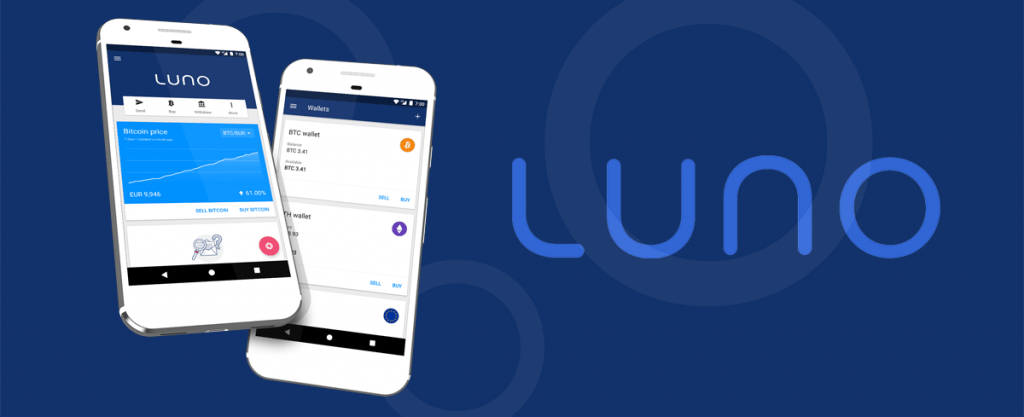Economy
Luno Engages CBN to Enable Customers Withdraw Funds

By Ahmed Rahma
One of the popular platforms for trading cryptocurrencies in Nigeria, Luno, has addressed the inability of its customers to withdraw their funds.
In a statement on Friday, the cryptocurrency trading platform said its users have been unable to get their money because the Central Bank of Nigeria (CBN) has blocked access to its Naira accounts.
How it all started
In February 2021, the CBN directed all commercial banks and other financial institutions in the country to block the accounts of crypto exchanges.
It explained in a circular and a subsequent notice that the use of digital currency in Nigeria was illegal and that as an institution saddled with the responsibility to regulate the nation’s banking industry, it would not allow the use of illegal money.
“Further to earlier regulatory directives on the subject, the bank hereby wishes to remind regulated institutions that dealing in cryptocurrencies or facilitating payments for cryptocurrency exchanges is prohibited.
“Accordingly, all DMBs, NBFIs and OFIs are directed to identify persons and/or entities transacting in or operating cryptocurrency exchanges within their systems and ensure that such accounts are closed immediately.
“Please note that breaches of this directive will attract severe regulatory sanctions,” a circular dated February 5, 2021, signed by the Director of Banking Supervision, Bello Hassan, said.
Though the apex bank said the directive was with immediate effect, a window was allowed for customers of cryptocurrency exchanges to withdraw their funds.
For those who could not take back their money, it has been difficult because the banks have blocked access to the accounts in compliance with the order of the regulator.
Growing concerns of customers
The inability of some trapped customers to withdraw their funds has not gone down well with Luno, which said it was having discussions with the apex bank on ways to unblock its bank accounts to allow it to refund customers’ money.
Luno addresses the issue
In the statement released today, the firm assured that it would make the refund to its clients as soon as it gets the green light from the central bank.
“We are still in communication with the CBN and are hopeful that they’ll soon grant us access to our accounts to be able to payout Naira,” a part of the statement said.
“As soon as we are able to get access to our accounts, Nigerians will be able to withdraw. In the meanwhile, rest assured that your funds are completely safe and we are on your side,” Luno assured.
Discrepancies in Bitcoin rates
Meanwhile, Luno has addressed the concerns raised by some of its customers as regards the rate the Bitcoin and other digital tokens are sold on its platform.
Some cryptocurrency traders in Nigeria had claimed the value of the Bitcoin on Luna was higher than its competitors, forcing some of them to migrate.
But Luno said the price of Bitcoin on each platform is majorly determined by the forces of demand and supply.
“Firstly, the price of Bitcoin is determined by supply and demand, not Luno or any other cryptocurrency exchange.
“Each platform and country has its own unique marketplace with its own drivers of demand,” the company stated.
“The recent CBN directive has meant Naira withdrawals are no longer possible.
“Buying Bitcoin is the only way for Nigerians looking to send the Naira they still have in their accounts.
“This means there is now a power imbalance favouring the seller, causing higher prices.
“Secondly, the ban has also created market inefficiencies that remove the correlation between different crypto exchanges, resulting in significant price differences from one exchange and another,” it further said.
Luno silent on P2P adoption
Meanwhile, the company has remained silent on the possibility of its users in Nigeria to transact cryptocurrency through the peer-to-peer (P2P) system.
In a previous statement, Luno had maintained that it was not planning to consider the use of P2P to trade the digital coins on its platform.
However, a few of its competitors, including Binance, Paxful, amongst others, have adopted this system to beat the ban of cryptocurrency trading in Nigeria.
Economy
NGX RegCo Cautions Investors on Recent Price Movements

By Aduragbemi Omiyale
The investing public has been advised to exercise due diligence before trading stocks on the Nigerian Exchange (NGX) Limited.
This caution was given by the NGX Regulation Limited (NGX RegCo), the independent regulatory arm of the NGX Group Plc.
The advisory became necessary in response to notable price movements observed in the shares of certain listed companies over recent trading sessions.
On Monday, the bourse suspended trading in the shares of newly-listed Zichis Agro-allied Industries Plc. The company’s stocks gained almost 900 per cent within a month of its listing on Customs Street.
In a statement today, NGX RegCo urged investors to avoid speculative trading based on unverified information and to consult licensed intermediaries such as stockbrokers or investment advisers when needed.
It explained that its advisory is part of its standard market surveillance functions, as it serves as a measured reminder for investors to prioritise informed and disciplined decision-making.
The notice emphasised that the Exchange will continue to monitor market activities closely in line with its mandate to ensure a fair, orderly, and transparent market.
“NGX RegCo encourages all investors to base their decisions on publicly available information, including a thorough assessment of company fundamentals, financial performance, and risk profile,” a part of the disclosure said.
It reassured all stakeholders that the NGX remains stable, well-regulated, and resilient, saying the platform continues to foster an environment where investors can participate with confidence, supported by robust oversight and transparent market operations.
“Our primary responsibility is to maintain a level playing field where market participants can trade with confidence, backed by timely and accurate information.
“This advisory is a routine communication, reinforcing that sound fundamentals, not speculation, remain the foundation for sustainable investment outcomes. We are fully committed to preserving the integrity and stability of our market,” the chief executive of NGX RegCo, Mr Olufemi Shobanjo, stated.
Economy
Stronger Taxpayer Confidence, Others Should Determine Tax Reform Success—Tegbe

By Modupe Gbadeyanka
The chairman of the National Tax Policy Implementation Committee (NTPIC), Mr Joseph Tegbe, has tasked the Nigeria Revenue Service (NRS) to measure the success of the new tax laws by higher voluntary compliance rates, lower administrative costs, fewer disputes, faster resolution cycles, and stronger taxpayer confidence.
Speaking at the 2026 Leadership Retreat of the agency, Mr Tegbe said, “Sustainable revenue performance is built on trust and efficiency, not enforcement intensity,” emphasising that the legitimacy and predictability of the system are more critical than punitive measures.
He underscored that the country’s tax reform journey is at a critical juncture where effective implementation will determine long-term fiscal outcomes.
The NTPIC chief stressed that tax policy must serve as an enabler of governance, and should embody simplicity, equity, predictability, and administrability at scale.
These principles, he explained, foster voluntary compliance, reduce operational friction, and strengthen investor confidence. He warned that ad-hoc adjustments or policy drift could undermine reform momentum, unsettle businesses, and deter investment, which thrives on predictable rules rather than shifting announcements. Structured sequencing, clear transition mechanisms, and continuous feedback between policymakers and administrators are therefore critical to sustaining reform credibility.
Mr Tegbe further argued that revenue reform cannot succeed in isolation. Achieving sustainable gains requires a whole-of-government approach, leveraging robust taxpayer identification systems, integrated financial data, efficient dispute resolution, and harmonised coordination across federal and sub-national levels. This approach, he said, reduces leakages, eliminates multiple taxation, and reinforces confidence in the system.
He noted that the passage of four new tax laws marks only the beginning of a broader reform agenda, describing the initiative as a systemic recalibration of Nigeria’s fiscal architecture, rather than a routine policy update.
He further asserted that the true measure of success will be the credibility of implementation, not the design of the laws themselves.
The NRS, he noted, functions as the nation’s “Revenue System Integrator,” with outcomes reflecting the strength of an interconnected ecosystem that encompasses policy clarity, enforcement consistency, digital infrastructure, dispute resolution efficiency, and intergovernmental coordination.
Economy
NUPENG Seeks Clarity on New Oil, Gas Executive Order

By Adedapo Adesanya
The National Union of Natural and Gas Workers (NUPENG) has expressed deep concern over the Executive Order by President Bola Tinubu mandating the Nigerian National Petroleum Company (NNPC) Limited to remit directly to the federation account.
In a statement signed by its president, Mr William Akporeha, over the weekend in Lagos, the union noted that the absence of detailed public engagement had naturally generated tension within the sector and heightened restiveness among workers, who are anxious to know how the new directive may affect their employment, welfare and job security, especially as it affects NNPC and other major operations in the oil and gas sector.
It pointed out that the industry remained the backbone of Nigeria’s economy, contributing significantly to national revenue, foreign exchange earnings, and employment.
The NUPENG president affirmed that any policy shift, particularly one introduced through an Executive Order, has far-reaching consequences for regulatory frameworks, Investment decisions, operational standards, and labour relations within the sector.
According to him, “there is an urgent need for clarity on the scope and objectives of the Executive Order -What precise reforms or adjustments does it introduce? “Its implications for the Petroleum Industry Act -Does the Order amend, interpret, or expand existing provisions under PIA?
“Impact on workers and existing labour agreements-Will it affect job security, conditions of service, Collective Bargaining agreements or ongoing restructuring processes within the industry? “Effects on indigenous participation and local content development -How will it affect Nigerian companies and employment opportunities for citizens?”
He warned that without proper consultation and explanation, misinterpretations of the Executive Order may spread across the industry, potentially destabilising operations and undermining industrial harmony that stakeholders have worked hard to sustain.
“Though our union remains committed to constructive engagement, national development and stability of the oil and gas sector, however, we are duty-bound and constitutionally bound to protect the rights and welfare and job security of our members whose livelihoods depend on a clear, fair and predictable policy framework,” Mr Akporeha further stated.
-

 Feature/OPED6 years ago
Feature/OPED6 years agoDavos was Different this year
-
Travel/Tourism10 years ago
Lagos Seals Western Lodge Hotel In Ikorodu
-

 Showbiz3 years ago
Showbiz3 years agoEstranged Lover Releases Videos of Empress Njamah Bathing
-

 Banking8 years ago
Banking8 years agoSort Codes of GTBank Branches in Nigeria
-

 Economy3 years ago
Economy3 years agoSubsidy Removal: CNG at N130 Per Litre Cheaper Than Petrol—IPMAN
-

 Banking3 years ago
Banking3 years agoSort Codes of UBA Branches in Nigeria
-

 Banking3 years ago
Banking3 years agoFirst Bank Announces Planned Downtime
-

 Sports3 years ago
Sports3 years agoHighest Paid Nigerian Footballer – How Much Do Nigerian Footballers Earn















